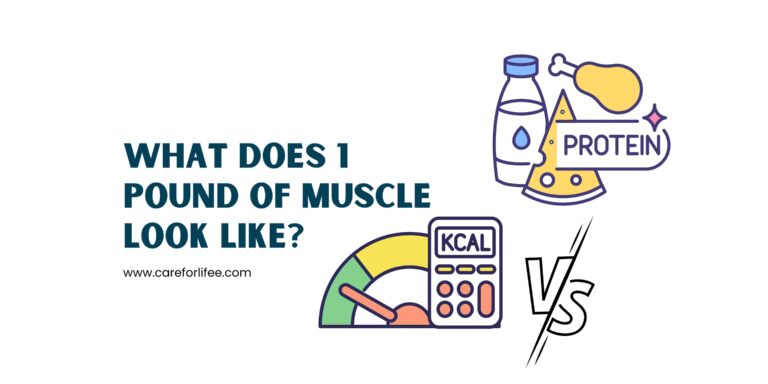How Much Muscle is Too Much?
When it comes to fitness, the pursuit of muscle growth is a common goal for many individuals. The image of a well-built physique often evokes feelings of strength, power, and confidence. However, a question that often arises is: Can there be such a thing as too much muscle?
The Physiology of Muscle Growth
To understand the limits of muscle growth, we must first grasp the physiology behind it.
Muscle Hypertrophy: The Process of Muscle Growth
Muscle hypertrophy, the process of muscle growth, occurs through a combination of resistance training and proper nutrition.
Hormonal Factors in Muscle Development
When we engage in strength training exercises, such as weightlifting, our muscles experience micro-tears, prompting the body to repair and rebuild them stronger and larger. Testosterone and other hormones play a crucial role in facilitating this process.
Training Methods for Muscle Growth
There are various training methods, such as high-volume training or progressive overload, that can further optimize muscle development.
Determining Your Ideal Muscle Mass
While the desire to build muscle is common, it’s important to consider individual factors when evaluating muscle mass goals.
Considerations: Body Type and Genetics
Body type and genetics play a significant role in determining one’s potential for muscle growth. Each person has a unique genetic predisposition for muscle development, and some individuals naturally have more muscle mass than others.
Personal Fitness Goals and Aspirations
Personal fitness goals and aspirations should be taken into account when determining ideal muscle mass. Functional requirements for specific sports or activities may dictate the desired muscle mass.
Body Composition and Muscle Definition
Body composition, which refers to the ratio of muscle, fat, and other tissues in the body, is another essential consideration when determining your ideal muscle mass. Striving for a balance between muscle definition and maintaining a healthy body fat percentage is key.
The Benefits of Muscle Growth
Before we dive into the potential risks of excessive muscle mass, let’s highlight the benefits that come with muscle growth.
Metabolic Health and Weight Management
Muscle is metabolically active, meaning it burns more calories at rest than fat. Therefore, building muscle can contribute to improved metabolic health and weight management.
Strength, Power, and Performance
Increased muscle mass translates to enhanced strength, power, and performance. Whether you’re an athlete striving for better athletic performance or an individual aiming to complete daily tasks with ease, having a solid foundation of muscle can significantly contribute to your overall functional abilities.
Physical Appearance and Self-Confidence
Muscle growth can enhance physical appearance, leading to increased self-confidence and improved body image.
Long-Term Health Benefits
The long-term health benefits of muscle growth include improved bone density, which is particularly important as we age.
The Potential Risks of Excessive Muscle Mass
While muscle growth offers numerous benefits, it’s essential to be aware of the potential downsides of carrying too much muscle.
Increased Risk of Injuries
One primary concern is an increased risk of joint and tendon injuries. Excessive muscle mass can put additional strain on the joints, potentially leading to discomfort or injury.
Limited Flexibility and Mobility
Limited flexibility and mobility can become an issue if muscle growth is pursued without considering these aspects. Maintaining flexibility through stretching exercises and incorporating mobility work into your routine is crucial for preventing muscle imbalances and maintaining a full range of motion.
Cardiovascular Implications
Another consideration is the impact on cardiovascular health. While resistance training can have positive effects on cardiovascular fitness, excessive muscle mass may impede cardiovascular performance, as the heart has to work harder to supply blood to a larger muscle mass.
Body Image and Psychological Considerations
It’s important to acknowledge the potential psychological implications of striving for excessive muscle mass. Body image concerns and a preoccupation with size and appearance can lead to negative self-perception and impact overall well-being.
Finding the Balance
To find the right balance in muscle growth, it’s important to prioritize proportionality and overall fitness.
Emphasizing Proportionality
Instead of solely focusing on muscle size, aim for a well-rounded physique that includes muscle development, flexibility, and mobility.
Incorporating Flexibility and Mobility Exercises
Incorporating exercises that promote flexibility, such as yoga or dynamic stretching, can help counterbalance the potential limitations of excessive muscle mass.
Importance of Nutrition
Proper nutrition plays a crucial role in optimizing muscle growth and supporting overall health. Ensure you’re consuming an adequate amount of protein to support muscle repair and growth, along with a balanced diet that includes essential vitamins and minerals.
Exploring Different Training Modalities
Exploring different training modalities, such as incorporating cardio exercises and functional movements, can contribute to a well-rounded fitness routine.






